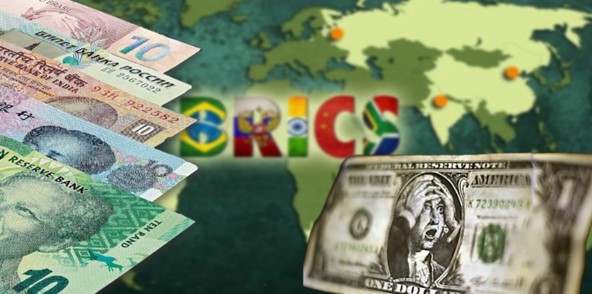De-dollarization is the process by which countries may end up abandoning the United States Dollar (USD) in international trade and transactions in favor of other currencies. For the moment, the USD is the reserve currency which is globally used in the trading of oil and other important commodities. China and Russia, on the other hand, have been at the forefront of the de-dollarization trend, exploring alternative currencies and new financial institutions that operate outside the dollar-dominated global financial system.
The United States Vs China
China has been developing its digital currency for nearly a decade with the goal of eventually replacing the USD. As countries seek to reduce their exposure to the risks and fluctuations associated with the USD, de-dollarization trends are gaining traction. In fact, many economists have advocated for the creation of a viable digital currency to serve as the new reserve currency on a global scale.
On that note, CBDCs (Central Bank Digital Currencies) have the potential to play an important role in the future of global trade and settlements. Several central banks are already collaborating with the Bank for International Settlements on the mBridge wholesale CBDC platform, which allows financial institutions to conduct large-value wholesale transactions. CBDCs may help to address some of the inefficiencies and risks in traditional payment systems as more countries adopt them, though they do have their own share of issues which cannot be ignored.
What comes next?
China is pushing for greater use of its own currency, the Yuan, in international trade and investment, which could challenge the USD in terms of dominance in global transactions. Meanwhile, Southeast Asian countries are following suit and discussing de-dollarization efforts to mitigate the risks associated with the current reserve currency.
The BRICS nations, which consist of Brazil, Russia, India, China, and South Africa, are also actively cooperating in areas where mutual interests align. As a matter of fact, these nations want to launch a new global reserve currency known as the BRICS Currency with the explicit purpose of challenging the petro-dollar and supposedly giving it a taste of its own medicine.
These recent developments point to a changing landscape in international finance, as countries seek to reduce their reliance on the United States Dollar and increase their use of alternative currencies like Bitcoin (BTC) and Ethereum (ETH). Even if only a fraction of the liquidity is directed towards cryptocurrencies, the de-dollarization trend is expected to boost them in the long run. In any case, the fact remains that an increasing number of countries are shifting away from the US financial system and toward digital assets and self-sustainment.














